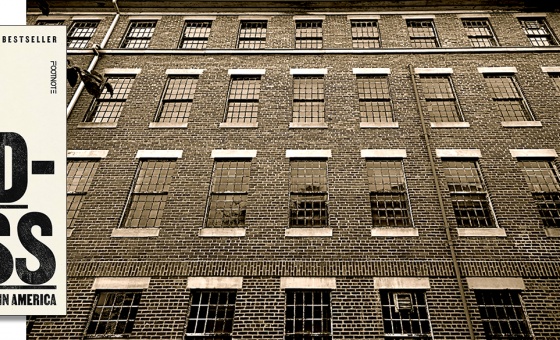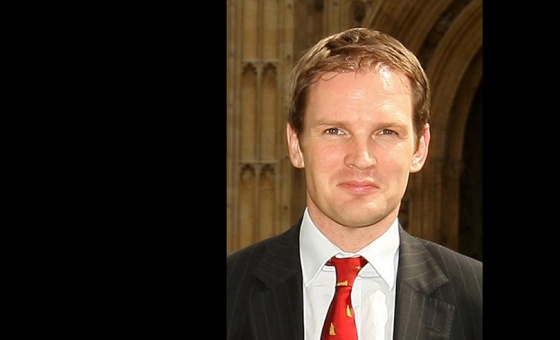This is the last article you can read this month
You can read more article this month
You can read more articles this month
Sorry your limit is up for this month
Reset on:
Please help support the Morning Star by subscribing here
Head North - A Rallying Cry for a More Equal Britain
Andy Burnham and Steve Rotheram
Trapeze, £22
ANDY BURNHAM, Mayor of Greater Manchester, and his mate Steve Rotheram, Mayor of Liverpool City Region, became so disillusioned with Westminster politics that they decided together to pack in their MP day jobs and go for two mayoral positions in the north. They felt they would be able to do more up there in terms of helping their own people, and make a real difference.
I’ve always had respect and admiration for both Andy Burnham and Steve Rotherham, as two of the very few MPs who are genuinely concerned about the welfare of their constituents, have a basic decency, strong principles and a genuine humanity.
In this jointly written book, they argue strongly for a different kind of politics that would address the stark inequalities in Britain and the north-south divide.
They are both avowed socialists and of the left – Steve was Jeremy Corbyn’s personal secretary and Andy served in his shadow cabinet. But they are socialists more in the Fabian than the Marxist tradition.
This book is their combined autobiography, growing up as working-class boys in the Liverpool area, where football was, as for many other northerners, the centre of their lives. The first section is about their growing up and their political awakening as well as lots of football.
About their decision Andy writes: “If we left [Parliament] together and tried to build devolution in the north as a partnership, perhaps we would have half a chance of making Westminster sit up and take notice?” They both felt alienated by the arcane structures and workings of that elite boys’ and, more recently girls’ club. ”Westminster,” he argues, “rewards loyalists and mavericks: the former get promoted and the latter get the kudos of looking independent.”
Both authors have a strong working-class allegiance but only a modicum of class consciousness.
Andy voted for the Iraq war, something he regrets today, and he campaigned for Remain in the Brexit referendum: “I was gearing up to put my tanks on Nigel Farage’s lawn and make ’the patriotic case for Remain,’” he writes.
And later: “I feel proud to be British... Brits have always been bridge-builders, not isolationists. We have spent centuries painstakingly building unions between countries not breaking them. Churchill, the person who most people see as the father of our own nation, was a founding father of the European Union... it is a British achievement.” I have to wonder, with its history of brutal colonial conquest, its systematic destruction of other nations and regions, and its rampant imperialism if he has grown up in the same country as I have?
As a consequence of this lack of class consciousness, they both see inequality in the country as the result of a north-south divide, rather than a class divide, merely overlayed by geography. And both view Westminster not as dominated by a ruling class or by capitalism in its modern globalised form, but as a rather nebulous southern elite in its own right.
They talk of northern values as if they are different from those in the south, east or west. Such localised patriotism hardly sits comfortably alongside a wider or even internationalist view.
The first half of their book deals with the laudable battle to obtain a Hillsborough enquiry and then, later, relates how Covid played out in the north, confronted by central government’s incompetence, discrimination and neglect.
In Part 2, they set out their vision for a ”rewiring” of Britain, involving 10 main points, including a written constitution. “We need to make power in favour of ordinary people and away from the powerful establishments,” they write.
In their “Head North Plan” manifesto, they call for the establishment of a Basic Law and a written constitution, based on the German model, but apparently not realising that Germany’s Basic Law (adopted as a temporary pre-reunification measure by the Federal Republic in 1949) is the same thing as a written constitution. They clearly admire Germany’s political structures.
Although Germany’s regional system of government does have a lot of advantages over Britain’s, particularly in terms of a fairer wealth distribution, the authors tend to idealise this, and even invited the German Parliamentary State Secretary for East Germany and Equivalent Living Conditions in Scholz’s cabinet to address a northern regional convention. They swallowed hook-line-and-sinker his avowal that post-unification East Germany and West Germany had been levelled up, and clearly haven’t become aware of the considerable gap in living standards and ongoing discrimination that still persists between the two former Germanies.
Burnham and Rotheram should certainly be congratulated on addressing our disfunctional political system and in attempting to offer a solution as well as renewed hope to a country in the process of self-destruction. However, without better understanding and addressing the underlying economic forces and class interests determining our country’s trajectory, the proffered solutions will remain illusory.











